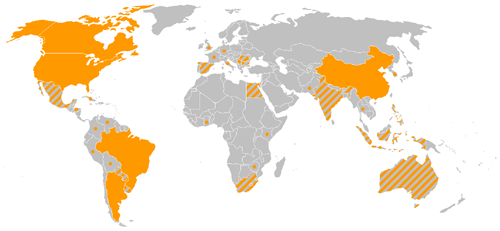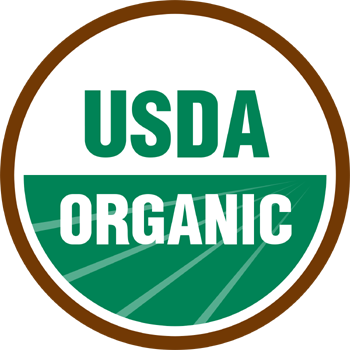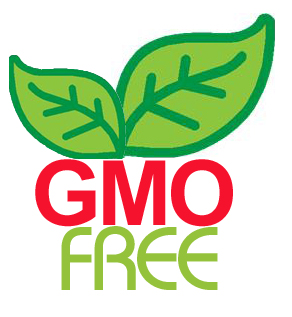Changing Food Habits: Are You Eating GMOs, Organic Foods Or …?
CHANGING FOOD HABITS: ARE YOU EATING GMOs, ORGANIC FOODS OR … (ISSUE 79)
By Diane Gold
 For years, we have been ingesting food that has been modified to yield bigger crop, faster growth, more eye-appealing shape, resist or repel certain insect infestation and more.
For years, we have been ingesting food that has been modified to yield bigger crop, faster growth, more eye-appealing shape, resist or repel certain insect infestation and more.
We have been polluting our air through crop dusting modification, exposing ourselves to the sickness from toxin exposure, used to bio-technically modify seed and now, are faced with super insects made strong through genetically modified chemical resistance and the sicknesses that come from these super bugs. There is talk that humans should not be eating toxins. Not a new revelation.
Biotech companies want to make money. Great. They should have the right. However, the regulations put forth for these companies should not be removed disguised as developing technologies that will feed the world – IF the health risks have not been examined.
Governments are the regulators. Governments are we, the people. Regulating food is an issue that needs an amendment, as I see it. As part of the wonderful Open Government Act that is fabulous in words, I’d like to see transparency in food labeling. Why would a government as large and powerful as the United States not require transparency from which we could all benefit? And the answer is _________.
 Of course, governments are corporations. They deal with other corporations. When one corporation does a business deal with another, a purchase or transaction is made.
Of course, governments are corporations. They deal with other corporations. When one corporation does a business deal with another, a purchase or transaction is made.
Sometimes money is not exchanged, but favors, instead. When a corporation subsidizes government programs, the government may offer lenient regulations, in gratitude. This is where governing gets tricky.
How does a government accept help from big business, (which it needs to subsidize breakfast for children, senior flu shots, food for animals and environmental programs) and still stay neutral? Not easily.
So, what can we do to help?
ACTION STEPS
1) We can become educated about food and genetic modification and change our habit of thinking that food is pure, and we can change our buying habits.
Here are three important points:
a) ingredient labels on packaged food show the major percentage of food substance. Trace ingredients under a certain percentage are not required to be included. That means, if animal bone substance is used to bleach sugar (not common in the US any more), and there is no animal substance detectable in the finished product, it does not go on the label. Our habit of believing in these labels needs to change. It should be noted that packaged goods that have 70% organic substances in them are able to use the word “organic.”
b) there is no ingredient label on produce. Our habit of believing that all produce is the same needs to be looked at. Organic food is not genetically modified. Organic food is produced without using most conventional pesticides; fertilizers made with synthetic ingredients or sewage sludge; bioengineering; or ionizing radiation.That means mineral oil (fossil oil), lipids, proteins, waxes and alkaloids can be used on organics. animals can be used. Yuck. That means oil can be organic since it’s not synthetic.
There are three organic categories:
 1. 100% organics, made with 100% organic ingredients.
1. 100% organics, made with 100% organic ingredients.
2. organic, which means made with 95% organic ingredients.
The USDA Organic seal is used with the first two categories only, 100% organic and 95% organic. There is no apparent differentiation between the two categories unless the manufacturer decided to list 100% organic. Most 95% organic producers would take advantage of the public’s ignorance in thinking a product with this label is 100% organic, rather than listing it as 95% organic.
3. made with organics, made with 70% organic ingredients and no GMOs.
Did you know these distinctions?
On both organic and non-organic produce, there are coatings (wax): organics with wax from bees, wood rosin and carnauba and non-organic from petroleum.
c) bananas, both organic and non-organic, are ripened by spraying ethylene on them. This is one synthetic chemical that is allowed because it acts identical to the chemical that naturally off-gasses in bananas that ripen naturally and are not picked early for shipping. Ethylene “gassing” is used on citrus that may look green, organic and non-. This process is not on any label. Why?
2) We can express to our government reps that we want the FDA label what is and what is not a GMO (a genetically modified organism). Since we are striving for a transparent way of living, we, as consumers, deserve to know what is in a bunch of produce or a package of food or prepared food that is ready to eat.
We don’t have this now. Isn’t this our right?

3) Join a group that knows more about this topic so that you can become more educated and take some of the action steps these groups have set up.
nongmoproject.org/learn-more is a good place to start. There’s also a march on March 25, 2013, targeting the largest supplier of modified seed (around 90%). It is not the only one, but it’s the big one: organicconsumers.org/monsanto
CONCLUSION
The risks of modifying seeds are known to exist. More research is needed to create data on all the side effects, but it is certain that there are correlations between certain sicknesses and genetically modified seeds.
In the same way we have executive, judicial and legislative branches of government, we need some system of checks and balances when it comes to the food industries ability to donate to or benefit the government and the government’s ability to reciprocate by regulating in favor of the industry.
We read headlines all the time that talk about “the government’s” doing this. Aren’t our representatives in government there to listen to what we have to say?
The time is now to be educated and active about the food we eat and the government’s ability to regulate on behalf of the health of its citizens with no eye on how this regulation will affect corporate donation to programs.
 Old habits die hard. Now that our eyes are opening, and many of us are aware of the uncertainties of consuming GMOs, let’s work on changing our habit of consuming without asking. Let’s be diligent so that we can create healthier habits to pass on to our children and to theirs. The more of us who require non-GMO food, the less expensive it will be to certify it as “non-GMO” by label on a package or bushel of produce.
Old habits die hard. Now that our eyes are opening, and many of us are aware of the uncertainties of consuming GMOs, let’s work on changing our habit of consuming without asking. Let’s be diligent so that we can create healthier habits to pass on to our children and to theirs. The more of us who require non-GMO food, the less expensive it will be to certify it as “non-GMO” by label on a package or bushel of produce.
In November, 2013, the citizens of Washington State will vote on a mandatory labeling bill. Approximately, 37 states are working on bills. Some call their bills, “Right To Know.”
We’re all in this together. Let’s take action now.
FEEDBACK
Please leave a comment and LIKE.
DIANE GOLD, AUTHOR
Diane Gold, Founder of Warriors of Weight, Turning Habits Into Health, is a mentor in tai chi, kung fu and meditation, a music, fitness and stress expert, dedicated mom, studying plant-based nutrition.
She has been studying labeling for four several decades . She says,
“The fact that the labeling system has not been modernized at the same rate as our discoveries in human nutrition reflects an imbalanced assessment on the government’s part regarding our internal health. This can also be seen by how slowly integrative medicine is appearing, which includes nutrition, fitness, mind body programs. And these, as of this writing, are only insurance reimbursable if an MD, no other kind of doctor, oversees the program.
“Be tenacious with nutrition. Spread the word about the benefits of organic food, non-GMO food, plant based food, unprocessed food. Take a step to change food habits one step at a time.
“SPECIAL ACTION STEP
“If you want to go for it, make a special commitment that for one meal on the day of your choice, you will refrain from any GMO foods. Do it for 3 weeks in a row, and see how much easier the third time is than the first. Then, if you’ve accomplished three weeks worth, continue the process, whatever that is for you. Your old ways that didn’t include this will be changed. And you will be healthier.”








[…] Changing Food Habits: Are You Eating GMOs, Organic Foods Or …? […]
[…] Changing Food Habits: Are You Eating GMOs, Organic Foods Or …? […]
[…] Changing Food Habits: Are You Eating GMOs, Organic Foods Or …? […]
[…] Changing Food Habits: Are You Eating GMOs, Organic Foods Or …? […]
“Well presented. I am very anti GMO. It really irks me that legislators in the U.S. and Canada vote to support non-labelling of GMO foods.”